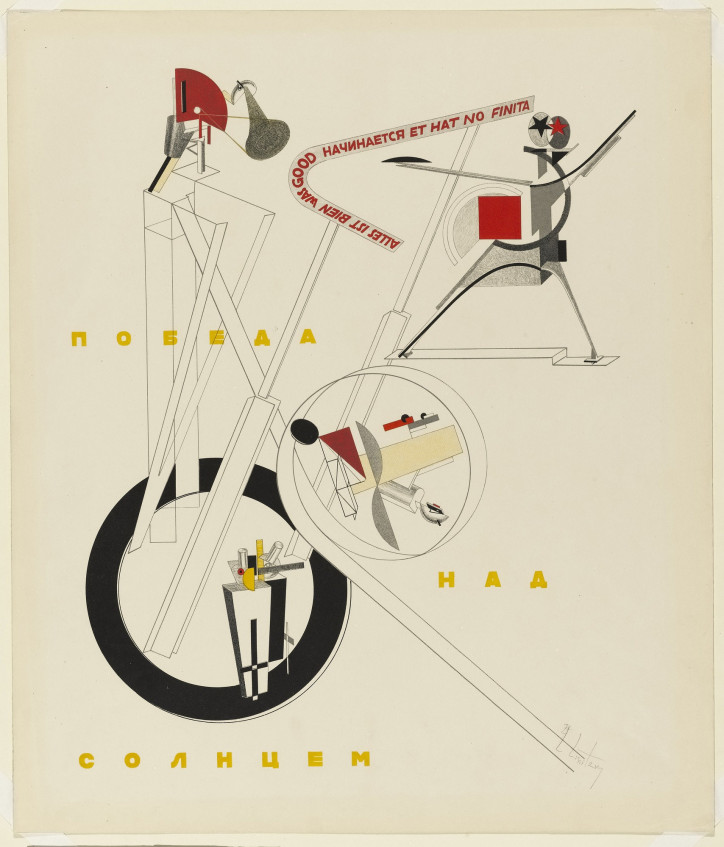
When Filippo Tommaso Marinetti’s Manifesto of Futurism was published in 1909, the Russians welcomed it like an epiphany. However, a mere five years later it had become clear that while the avant-garde movement in the East was hurtling along just as fast as the Italian movement led by the pioneers of modernity, it was headed in a very different direction.
The atmosphere was tense before Marinetti’s first reading in the auditorium of the Kalashnikov Stock Exchange in St. Petersburg. A day earlier, Nikolai Kulbin had gathered an informal welcoming committee of local Futurists at his home. The host – a popularizer and theoretician of new art who was older than the rest of the attendees and held prestigious positions as state councillor and doctor of the General Staff of the Russian Army – tried to coerce everyone into giving the Italian Futurist a friendly welcome. He was afraid of an embarrassing scene, remembering an interview that had appeared in a Moscow newspaper a few days before Marinetti’s arrival in Russia. In the interview, Mikhail Larionov – a co-founder of Rayonism, the second-most radical branch of the Russian avant-garde movement (after Suprematism) – argued that the Italian guest should be greeted with rotten eggs for betraying his previously proclaimed views.
Contrary to expectations, the visitor was greeted by bouquets of flowers on the platform of Moscow’s train station instead of a hail of chicken eggs. However, the flowers were given to him by representatives of the traditional literary establishment. Due to the absence of the leading Russian Futurists – David Burliuk, Vladimir Mayakovsky and Vasily Kamensky – while they were travelling through southern Russia, Marinetti didn’t have an opportunity to meet any of the major figures of the new avant-garde movement in Moscow. For this captain deprived of an army, the Russian press’s raptures over his vivacity and oratorical talent were hardly any consolation. Disappointed by the first leg of his journey to the East, he hurried to St. Petersburg.









